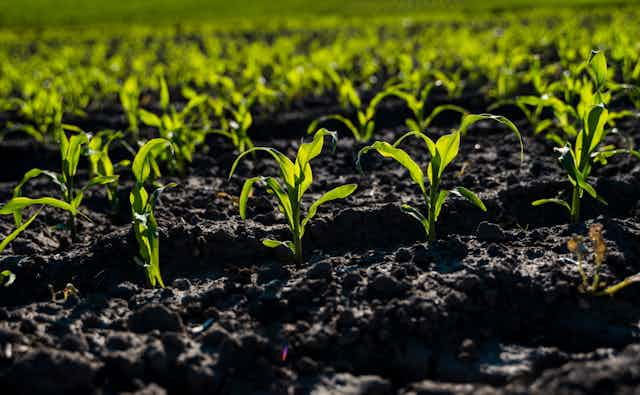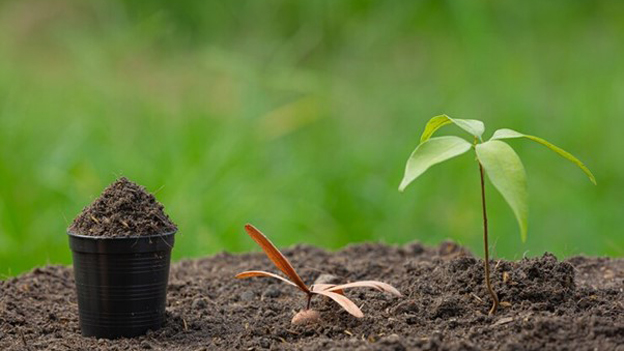With agriculture trending greener and greener, plant-based natural chemicals are being proposed as substitutes for toxic chemical pesticides and chemical fertilizers. Tea saponin is one of such chemicals derived from the Camellia seed. It has been a great focal point in recent times. Farmers are increasingly using it as an organic pesticide, soil conditioner, and plant growth stimulant.
But a common question remains: Is tea saponin safe for agriculture, and what should farmers know before using it? In this article, we'll explore its benefits, safety profile, practical applications, and the precautions that ensure responsible use in farming systems.

What Is Tea Saponin?
Tea saponin is a natural glycoside in tea seed plants (Camellia). Tea saponin contains foaming, emulsifying, and surfactant characteristics and has been utilized by as diverse an industry as cosmetics to aqua-farming throughout history. As a natural pesticide and a conditioner for soil, it has been of highest application to farmers looking for green products within the agricultural market.
The compound interferes with the cell membranes of some insects and disease organisms and is a natural surfactant that enhances soil health and nutrient acquisition.
Why Farmers Apply Tea Saponin in Agriculture
1. Organic Pest Control
Tea saponin controls against many different forms of insects from insects to nematodes and snails. It acts as a plant insecticide as well as molluscicide, which lessens the usage of chemical synthetic pesticides. The farmers prefer it too because it provides protection to the plant and yet is less toxic to the environment.
2. Soil Improvement
By facilitating water entry and aeration, tea saponin disrupts packed soils and facilitates root extension. Healthy plant equals healthy plant, higher crops.
3. Stimulation of Plant Growth
Tea saponin is not just protective but also beneficial. Being a biostimulant, it enhances plant metabolism and stress resistance to enable crops to grow on unfavorable growing conditions.
4. Suppression of Weeds and Pathogens
Research indicates that tea saponin has the potential to suppress certain weed plant types and soil-borne disease organisms because of its allelopathic and antimicrobial properties. This is an additional benefit in integrated pest and disease management programs.

Is Tea Saponin Safe for Agricultural Use?
Short answer: yes, when applied appropriately. Tea saponin is non-toxic to plants, soils, farmers, and consumers. Why?
1. Low Toxicity to Humans and Livestock
Unlike the majority of synthetic pesticides, tea saponin is very low in toxicity. Farmers exposed to it when working under very little protective equipment have little risks, and it is harmless to livestock and humans alike when soil or crop residues are left at prescribed levels.
2. Biodegradable and Eco-Friendly
Tea saponin naturally biodegrades with water and soil and leaves no toxic residues. This is a perfect product to be used in organic farm systems and ecologically friendly farming methods.
3. Safe for Consumption
Tea saponin is not harmful to produce toxic residues in the produce. This is very important to ensure food safety as well as responding to consumers' request for pesticide-free food.
4. Eco-Friendly
As it is a plant-based product, tea saponin has no effect on biodiversity in contrast to harmful chemical pesticides. It promotes environmentally friendly cultivation as it lessens the effect of agriculture on the environment.
Safety Factors that Need to be Known by Farmers
Although tea saponin is safe in most aspects, certain measures must be ensured while handling it. A few major points that farmers should understand are as follows:

1. Good Dosage Is Crucial
Overuse of tea saponin will most probably be harmful to positive soil organisms or hurt delicate crops. Farmers need to utilize pest management or soil conditioning at labeled rates at all times.
2. Prevention of Water Pollution
Even being biodegradable, tea saponin is toxic to water animals after being sprayed in concentrated dosages. It should be avoided from running off into ponds, rivers, or aquaculture systems by farmers unless into a specific aquaculture application site.
3. PREVENTION OF SENSITIVE PLANT INJURY
Some plants are sensitive to extremely high levels of tea saponin, particularly foliar sprays. Small-scale testing prior to use at commercial levels is recommended.
4. WEARING PROTECTIVE EQUIPMENT
Farmers, similar to other ag inputs, should wear masks and gloves when they work in order not to irritate the skin or cause respiratory issues. While toxicity is low, general safety ensures long-term health is safe.

Benefits of Safe Use of Tea Saponin in Crop Cultivation
Properly applied tea saponin is a treasure trove of advantages:
- Decreases the use of chemical pesticides and promotes green farming.
- Enhances soil and root growth to make plants healthier.
- Promotes greater crop production by reducing pest pressure and boosting plant growth.
- Is organic farming system friendly since it happens naturally through biological processes and can be biodegradable.
- Fosters long-term sustainability since it keeps the environment in balance.

Real Life Applications
Organic Farming
Tea saponin is mostly applied in organic farming owing to the fact that it is natural. It makes it possible for organic farmers to plant protectants without going against organic certification laws.
Rice Farming
Tea saponin is applied on the farm as a molluscicide to manage the golden apple snail, a destructive pest of all the countries in Asia. It is selected because of its efficacy and degradability.
Vegetable and Fruit Crops
Vegetable and fruit crop farmers apply tea saponin as an agent of pest control and soil health, thus achieving quality output.

Conclusion
Is tea saponin safe to grow with? Yes it is, a qualified yes-if used responsibly. Its natural production, low toxicity and biodegradability make it a wonderful constituent of sustainable and organic agriculture. As a pest control provider, soil conditioner, and plant growth promoter, tea saponin enables farmers to reduce the use of chemical inputs without reducing the level of productivity and without causing environmental harm.
For those producers that would like to adopt more sustainable approaches, tea saponin is a safe and effective option. The secret is merely using it correctly, depending on the crop reaction, and incorporating it into regular farm management practice.
References
Guo, X., et al. (2019). Application of tea saponin in agriculture: A review. Journal of Agricultural Science and Technology, 21(3), 521–533.
Zhang, Y., et al. (2018). Soil improvement and crop growth effects of tea seed saponins. Applied Soil Ecology, 123, 251–259.
EFSA (European Food Safety Authority). (2015). Natural plant-based pesticides and their safety in organic farming. EFSA Journal, 13(6), 4125.
Singh, A., et al. (2020). Plant-derived saponins: Properties and applications in agriculture. Sustainability, 12(12), 5145.










